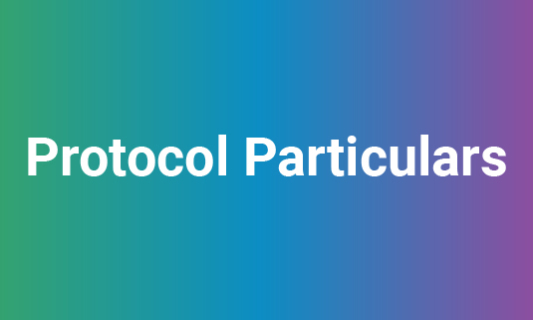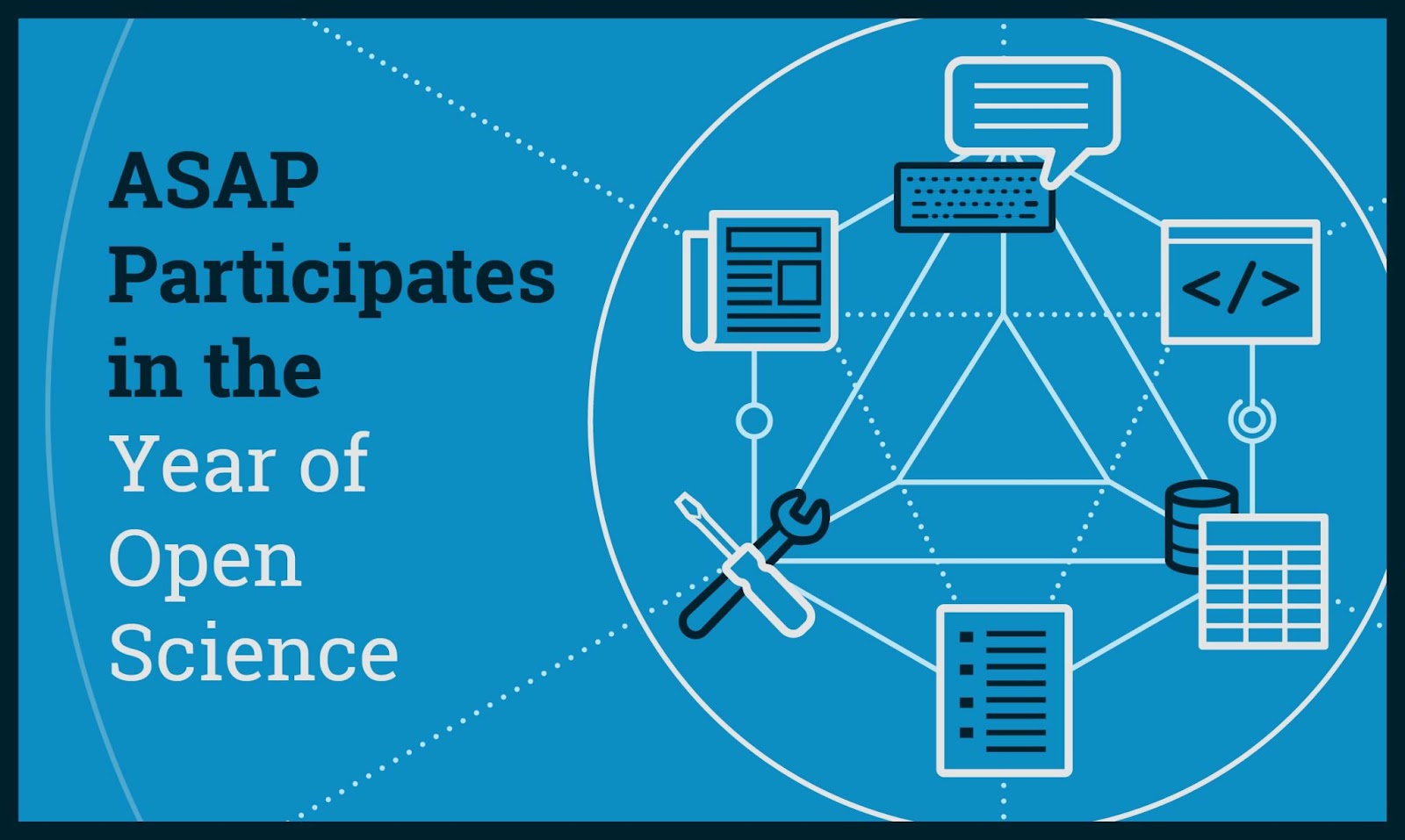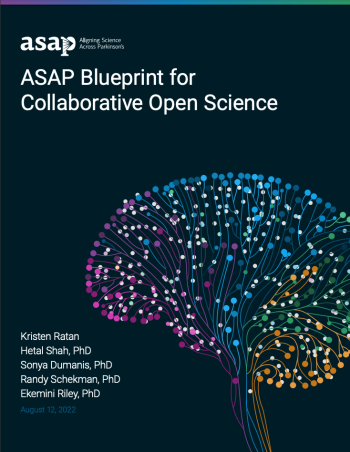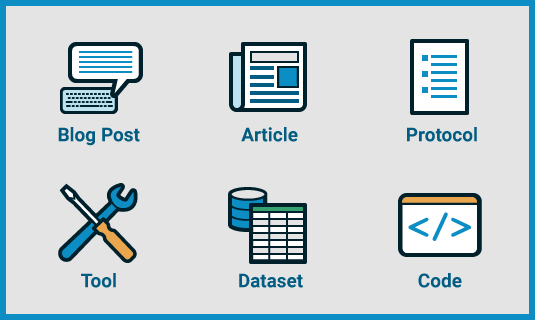Promoting open science is at the core of all ASAP work. We are committed to ensuring research outputs are distributed online, free of cost or other access barriers.
We are also committed to ensuring our network members follow open access policies. Doing so ensures we are able to live up to our mission of creating a future where meaningful collaboration, research-enabling resources, and data sharing give us the answers we need to understand, diagnose and treat Parkinson’s disease.
Open Science Champions
Every month, as a part of our commitment to open science, our network nominates a lab or individual whose work demonstrates a strong commitment to open science.

ASAP Announces Protocol Particulars Series
ASAP has created a new interview series where ASAP-funded researchers explain their protocols and share tips and best practices for utilizing the protocols. New interviews will be added monthly.
By sharing these protocols, ASAP continues to promote open science practices and accelerate discoveries for PD.
ASAP Participates in the Year of Open Science
ASAP is participating in the 2023 Year of Open Science to facilitate the rapid and free exchange of scientific ideas and inspire more researchers to adopt open science practices. Open science is a core tenet of our mission to accelerate discovery and inform a path to a cure for Parkinson’s disease (PD).
Our Year of Open Science main objectives are to:
- Work with the open science community more broadly to improve best practices for sharing research outputs.
- Augment the availability and depth of open science training sessions to our network, ensuring that all ASAP-funded resource programs and Collaborative Research Network (CRN) teams participate in open science training sessions and are informed of best practices.
- Align standards for depositing and sharing of data set types within our network.
- Continually evaluate and share our success in tracking open science compliance and measuring impact.
Learn more about our commitment to the Year of Open Science.

ASAP-Released Preprint on Open Science Compliance Monitoring
There is growing momentum to improve open research policies and require grantees to share all research outputs. We have made substantial investments in improving open science compliance monitoring for our grantees. In our preprint, “From Policy to Practice: Tracking an Open Science Funding Initiative,” we evaluate our effectiveness in improving research output sharing using new tools developed by DataSeer.Ai for all articles processed through the compliance workflow.
By sharing these findings, we hope to assist other funders and institutions as they consider open science implementation.
ASAP Blueprint for Collaborative Open Science
Open access extends beyond our research principals. It also includes transparency in how ASAP is structured and developed. Our Blueprint report details our structure and founding principles.
The ASAP Blueprint for Collaborative Open Science is a comprehensive report on how Aligning Science Across Parkinson’s (ASAP) has worked towards its goals to date. This Blueprint presents initial findings on how our approach to open science has solidified and evolved over its first three years, data and metrics on progress, and CC-BY versions of assets that can be adopted and adapted by others. ASAP plans to update the Blueprint with new findings and updated versions of these assets on a regular basis.


Explore ASAP’s Catalog
Our Catalog lists the ASAP-funded research outputs that are publicly available. Check out our blog posts, articles, protocols, datasets, code for analytical pipelines, and lab resources such as plasmids, cell lines or animal models.
Open Science Policy
By supporting an Open Science policy, we facilitate the rapid and free exchange of scientific ideas, ensuring that the research we fund can be leveraged for future discoveries. Our guiding principles are modified from the Panton Principles for Open Data in Science. We believe that:
- Science is based on collaboration – building on, reusing, and openly criticizing the published body of scientific knowledge.
- For science to effectively function, and for society to reap the full benefits from scientific endeavors, it is crucial that science data be made open.
- The ultimate value of data can often not be predicted and with advancing technologies and analytics, prior data could be reanalyzed for new insights and innovation.
